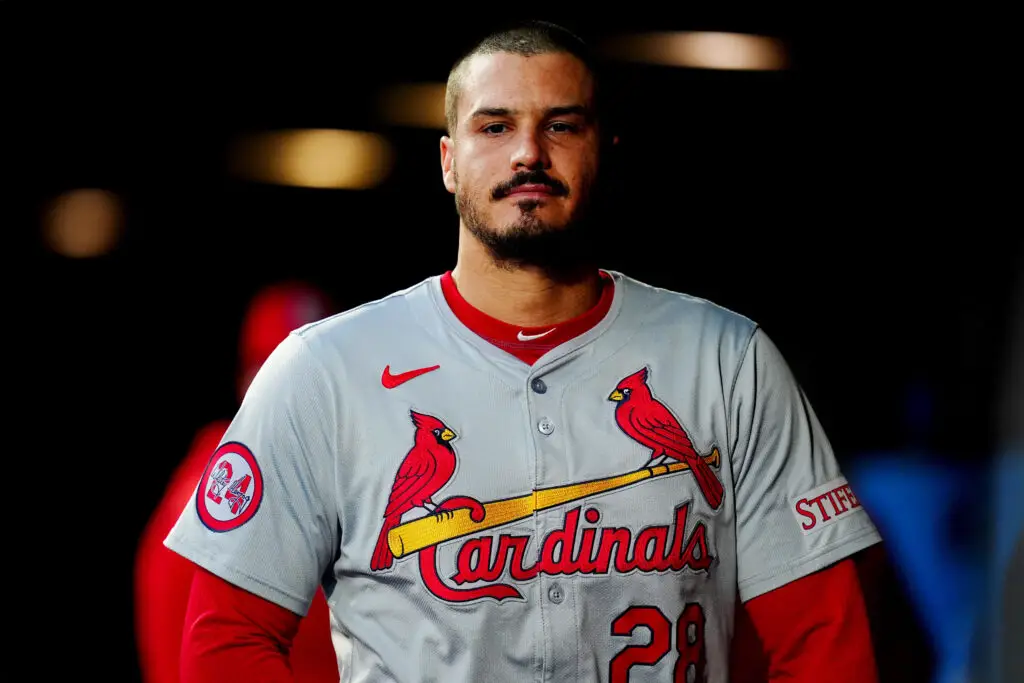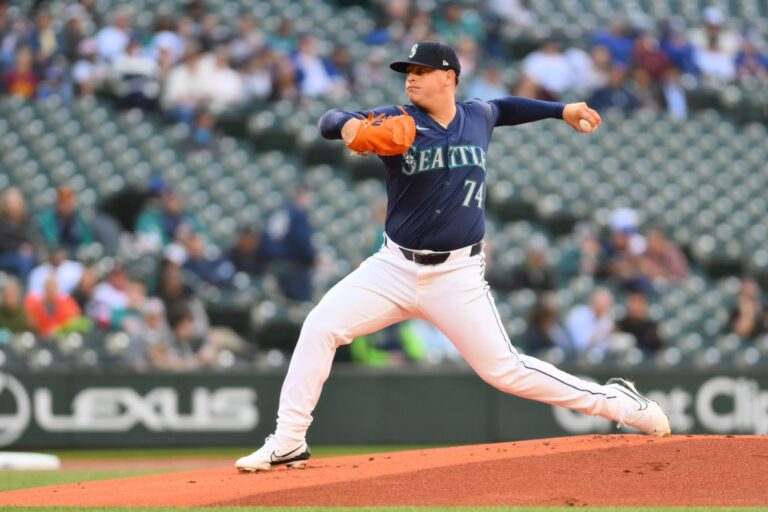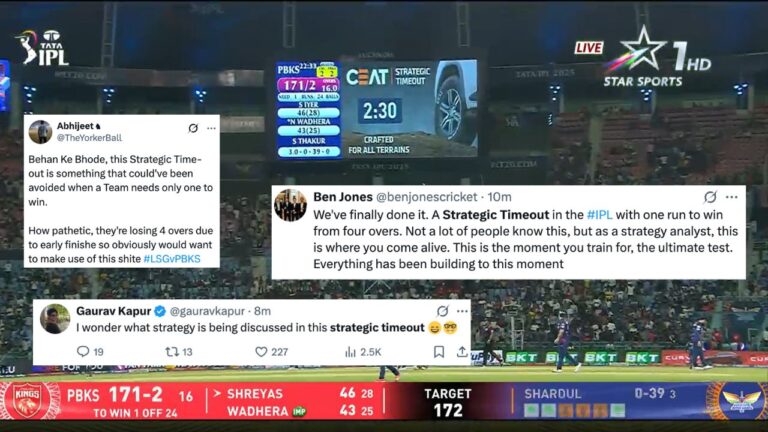
The Nolan Arenado saga has been perhaps the main storyline of the Cardinals’ offseason. As the club looks to scale back payroll and open up playing time for younger players (Nolan Gorman, in particular), Arenado has become one of the most prominent trade candidates in the sport. His full no-trade clause, downturn at the plate since 2023 and remaining three years and $74MM ($10MM of which is being covered by the Rockies) all combine to complicate the matter, however; Arenado has already reportedly invoked that no-trade clause to nix a deal to the Astros, who pivoted in mere days and signed first baseman Christian Walker to a three-year, $60MM deal instead (a contract nearly mirroring the $64MM they’d have owed to Arenado).
Agent Joel Wolfe said at last month’s Winter Meetings that Arenado was only open to trades to clubs where he felt he could win both in the short-term and for the remainder of his contract. It’s a bit odd that the Astros, who reached the playoffs in 2024 and reached the ALCS each season from 2017-23, didn’t fit that criteria, but there are surely multiple factors behind his decision.
Since that time, the Red Sox have been painted as the last and best hope for the Cardinals to orchestrate an Arenado trade. Even there, the situation is muddy. Acquiring Arenado would very likely mean moving Rafael Devers across the diamond to first base, where Triston Casas currently resides. Casas could see more time at DH, though the Sox are committed to Masataka Yoshida, who has three years and $54MM remaining, at that position. There’s the possibility of trading Casas, but Boston would surely need major league talent in return. It’s debatable whether they’d be better off with Arenado at third, Devers at first and whatever young talent they could get in return for Casas. Simultaneously, the Sox are considering a run at Alex Bregman (who’d also require shifting Devers to first and finding a trade for Casas or a taker for Yoshida). It’s all quite messy.
For those reasons and more, Katie Woo of The Athletic writes that he outlook on a possible Arenado deal is becoming increasingly bleak. Woo writes that efforts to move Arenado are at a “standstill” — in part because St. Louis isn’t interested in eating a notable chunk of the contract when part of their reason for wanting to move the third baseman is a desire to scale back spending. If no deal for Arenado materializes, per Woo, the Cards could look into other ways to trim payroll (and acquire young talent).
It’s quite arguable that the Cardinals should already be doing as much. The team isn’t making any efforts to improve the club for the upcoming season, after all, and the Cards are fresh off an 83-79 season. They’ve bid farewell to Kyle Gibson Lance Lynn, Paul Goldschmidt and Andrew Kittredge in free agency. Absent any effort to truly push closer to contention, it’s a stretch to think the Cardinals will make massive strides within the NL Central — let alone emerge as a bona fide threat in the postseason even if they limp to a playoff berth through a good showing within a weak division.
St. Louis has plenty of appealing players who’ll be free agents after the season and could be marketed to other clubs. Starter Erick Fedde ($7.5MM), closer Ryan Helsley ($8.2MM) and to a lesser extent veteran starter Steven Matz ($12MM) would all pique the interest of other clubs. That’s also true of setup man JoJo Romero, who’s controlled only through 2026. If the Cards aren’t taking a wholehearted aim at contending in 2025 anyhow, there’s good reason to explore trades of those players in the here and now, rather than risk a downturn in value following injuries or a poor first half of the season.
Moving Fedde or Matz would thin out the current rotation depth for a club that needs innings, though there’s of course the possibility to backfill via free agency. Derrick Goold of the St. Louis Post-Dispatch wrote this week that the club still has some interest in Mizzou product Kyle Gibson, who enjoyed pitching close to home last year and played a key mentor role for many of the team’s young players. Trading Fedde for prospects, for instance, and signing Gibson to replenish those innings could bolster the long-term outlook. It might not significantly reduce payroll on its own — it may slightly increase it, in fact — but it’d benefit the long-term health of the organization. Such a trade could also be coupled with deals of Matz and/or Helsley as well. Goold notes that both Fedde and Matz have drawn interest throughout the winter, which is only logical given the soaring price of free-agent pitching.
While The Athletic and Post-Dispatch continue to caution that chances of a trade don’t look great right now — Ken Rosenthal suggested as much today on Fair Territory, as well — MLB.com and MLB Network frame things differently. John Denton wrote this week that the Red Sox could soon pull out of the Bregman bidding, which would greatly improve the chances of an Arenado trade with St. Louis. The third baseman has already formally told the club he’d green-light a deal to Boston, per Denton, and he’s talked with friend and former teammate Trevor Story about the possibility of reuniting at Fenway Park.
Further, MLB Network’s Jon Morosi suggested on air this morning that as options have begun to dwindle, Arenado has begun to take a more open-minded approach. Some clubs that showed interest last month but didn’t pursue trades because of Arenado’s narrow list of criteria could come back into play, per Morosi. He suggests the Mariners and Tigers as two such clubs, though it’s virtually impossible to see how the Mariners could be considered a viable suitor given their well-documented financial constraints this winter.
The Tigers are a more plausible fit on paper, but they’ve spent quite conservatively under president of baseball ops Scott Harris; perhaps they’d have interest, but it’s hard to see them paying full freight on that contract, particularly when they have some third base options in house already (including top prospect Jace Jung).
Jeff Jones of the Belleville News-Democrat tweeted this morning that the Royals were among the teams that reached out to the Cardinals last month but didn’t pursue a trade because of a belief that Arenado wouldn’t green-light the deal. The Royals are still seeking another bat, and incumbent Maikel Garcia is a glove-first player with a lighter bat than even the recently diminished version of Arenado. Kansas City also traded its top third base prospect, Cayden Wallace, to the Nationals in last summer’s Hunter Harvey swap.
However, Arenado’s contract would figure to be quite problematic for the Royals. Beyond the $64MM total he’s owed is the fact that said commitment is front-loaded; Arenado is owed $32MM this coming season ($5MM being covered by Colorado). The Royals’ payroll is already close to $10MM higher than it was a year ago, per RosterResource. Rosenthal noted in the aforementioned Fair Territory segment (17:50 mark) that he was surprised Kansas City even eked out another $7MM to re-sign Michael Lorenzen. Piling an additional $27MM onto the payroll and pushing their Opening Day would push payroll close to or slightly north of $150MM. That’d top the current franchise record of $143MM, set back in 2017. Arenado might represent a clearer upgrade to the Royals or Mariners than to some other speculative fits, but neither seems to have the financial wherewithal to bring him aboard — even if Arenado were willing to approve the deal.
If that feels like a lot of words effectively downplaying the possibility of a trade and maintaining the status quo — well, it is. The simple reality is that Arenado was never going to be an easy player to move, and his decision to quash a trade to Houston — and the Astros’ immediate pivot — probably eliminated the best chance of the Cardinals moving him at all. Absent a new approach from the Yankees — New York offered Marcus Stroman for Arenado earlier this winter, which didn’t interest St. Louis — there’s no long-term contender with a clear need at third base and ample payroll space to take on a 34-year-old player whose bat appears to be on the decline.
Chances of a trade shouldn’t be considered dead and buried, of course. Spring injuries could always create a need for a big-payroll contender whose options at that juncture are limited. Such circumstances could prove a meaningful catalyst. Trades elsewhere on the market could alter another team’s considerations at the hot corner and spark some interest in Arenado. For now, however, it seems increasingly likely that Arenado may not have the market to facilitate a trade. If the Cardinals begrudgingly come to feel the same, it could create some fascinating ripple effects with regard to the rest of their roster.





